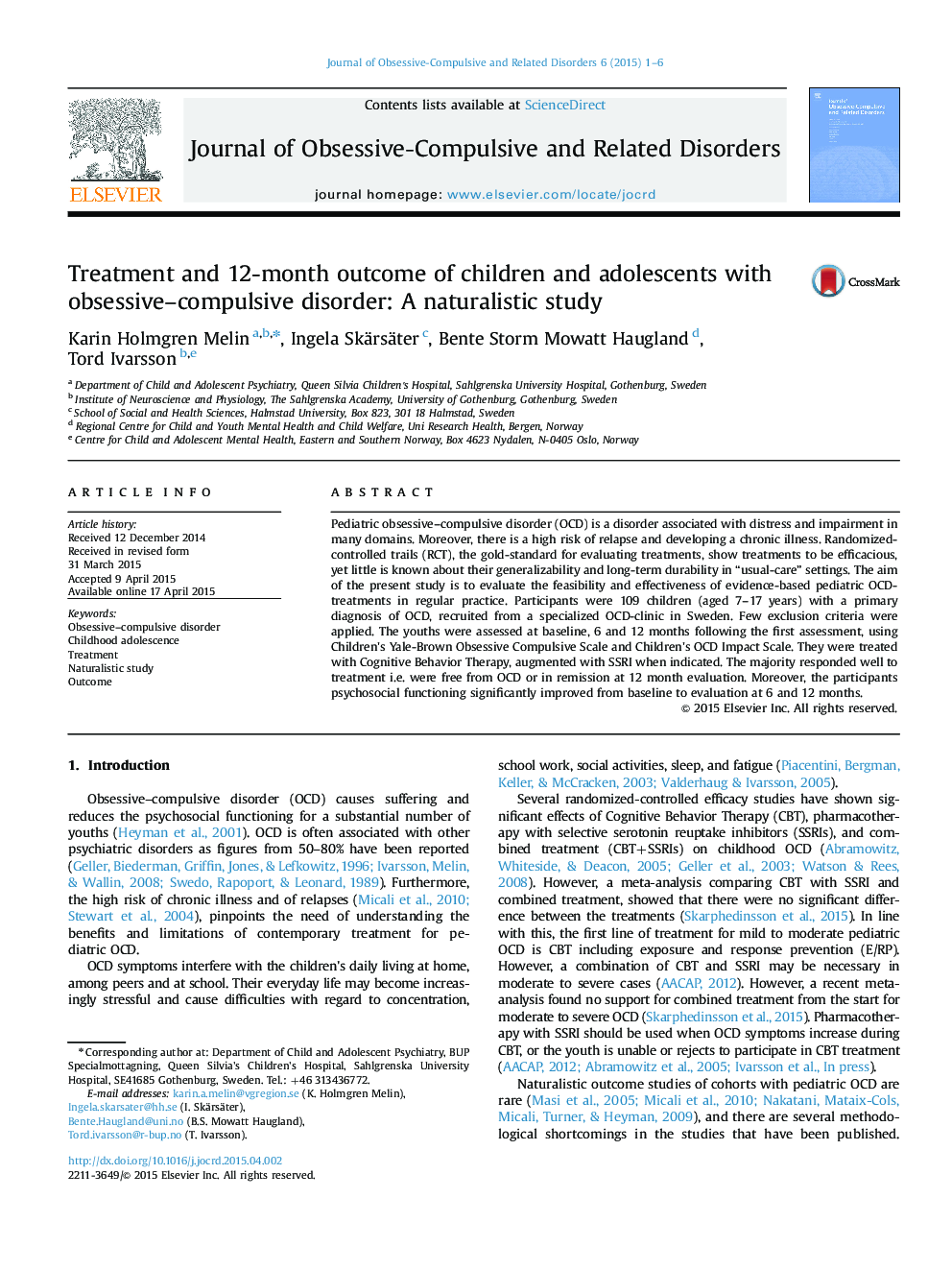| Article ID | Journal | Published Year | Pages | File Type |
|---|---|---|---|---|
| 912220 | Journal of Obsessive-Compulsive and Related Disorders | 2015 | 6 Pages |
•The 109 participants (age 7–17) evaluated 6 and 12 months from baseline.•Treatment was tailored to each patient, based on the expert consensus guideline.•Most cases (67%) were free from OCD or in remission at 12 month outcome.•Psychosocial functioning was significantly improved at 6 and 12 months follow-up.•A third of the patients still had moderate to severe OCD at 12-month follow up.
Pediatric obsessive–compulsive disorder (OCD) is a disorder associated with distress and impairment in many domains. Moreover, there is a high risk of relapse and developing a chronic illness. Randomized-controlled trails (RCT), the gold-standard for evaluating treatments, show treatments to be efficacious, yet little is known about their generalizability and long-term durability in “usual-care” settings. The aim of the present study is to evaluate the feasibility and effectiveness of evidence-based pediatric OCD-treatments in regular practice. Participants were 109 children (aged 7–17 years) with a primary diagnosis of OCD, recruited from a specialized OCD-clinic in Sweden. Few exclusion criteria were applied. The youths were assessed at baseline, 6 and 12 months following the first assessment, using Children׳s Yale-Brown Obsessive Compulsive Scale and Children׳s OCD Impact Scale. They were treated with Cognitive Behavior Therapy, augmented with SSRI when indicated. The majority responded well to treatment i.e. were free from OCD or in remission at 12 month evaluation. Moreover, the participants psychosocial functioning significantly improved from baseline to evaluation at 6 and 12 months.
